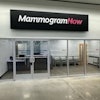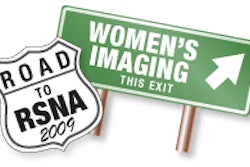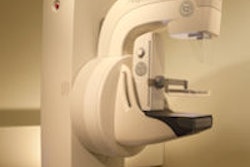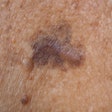Annual breast cancer screening should begin at age 40 for the average patient and even earlier in high-risk patients, according to newly published recommendations from the American College of Radiology (ACR) and the Society of Breast Imaging (SBI).
Published in this month's Journal of the American College of Radiology, the guidelines include recommendations for breast cancer screening by imaging technique (mammography, MRI, and ultrasound) and by risk factor, stating that the average patient should begin annual breast cancer screening at age 40, while high-risk patients should begin by age 30 but not before age 25 (JACR, January 2010, Vol. 7:1, pp. 18-27).
The two organizations' recommendations come as mammography screening has been under heavy debate regarding when to begin and how often to perform it, after the U.S. Preventive Services Task Force (USPSTF) issued guidelines last fall that suggested screening should begin at age 50 and then be conducted every other year. Ever since, mammography advocates have been mobilizing clinical data to show that annual mammography, starting at age 40, saves lives; in fact, at the RSNA meeting in November, a panel of breast cancer screening experts stated that the USPSTF guidelines were flat-out wrong.
There are plenty of clinical data supporting annual breast cancer screening for women starting at age 40, wrote lead author Dr. Carol Lee of Memorial Sloan-Kettering Cancer Center in New York City and colleagues in the JACR paper.
"Evidence to support the recommendation for regular periodic screening mammography comes from the results of several randomized trials conducted in Europe and North America that included a total of nearly 500,000 women," Lee and colleagues wrote. "Overall, based on a meta-analysis of the [trials], there was a 26% reduction in mortality."
And women at high risk should keep in touch with their doctors: In those instances in which there is a concern that the risk of developing cancer is higher than that of the general population, consultation with appropriate experts in breast cancer genetics and/or high-risk management is recommended, the authors wrote.
By Kate Madden Yee
AuntMinnie.com staff writer
January 4, 2010
Related Reading
Study eyes breast screening of minority women, December 9, 2009
Go directly to biopsy for palpable breast lesions? Not necessarily, December 7, 2009
U.S. Senate boosts preventive care for women, December 3, 2009
U.S. debate over mammograms splits along party lines, December 3, 2009
Panel of radiologists rejects USPSTF mammogram guidelines, December 2, 2009
Copyright © 2010 AuntMinnie.com



















